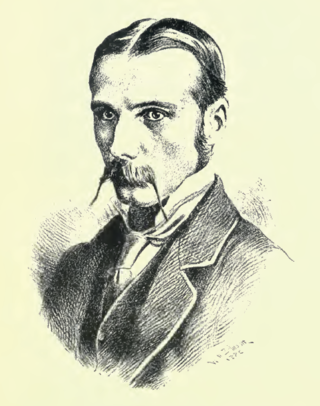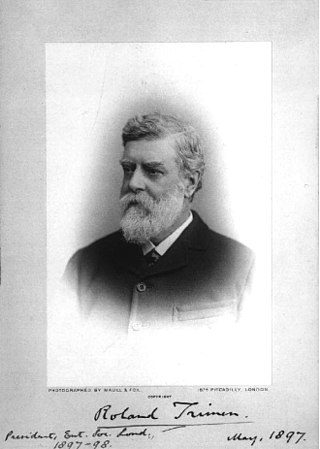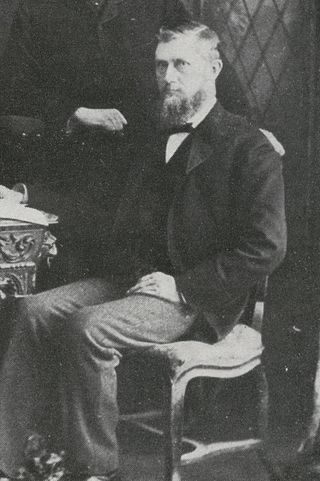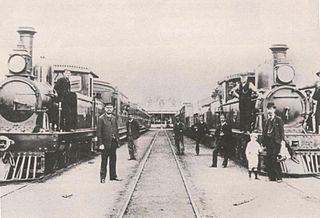
Sir Henry Bartle Edward Frere, 1st Baronet, was a Welsh British colonial administrator. He had a successful career in India, rising to become Governor of Bombay (1862–1867). However, as High Commissioner for Southern Africa (1877–1880), he implemented a set of policies which attempted to impose a British confederation on the region and which led to the overthrow of the Cape's first elected government in 1878 and to a string of regional wars, culminating in the invasion of Zululand (1879) and the First Boer War (1880–1881). The British Prime Minister, Gladstone, recalled Frere to London to face charges of misconduct; Whitehall officially censured Frere for acting recklessly.

Sir Thomas UpingtonKCMG (1844–1898), born in Cork, Ireland, was an administrator and politician of the Cape Colony.

The Union-Castle Line was a British shipping line that operated a fleet of passenger liners and cargo ships between Europe and Africa from 1900 to 1977. It was formed from the merger of the Union Line and Castle Shipping Line.

John Xavier Merriman was the last prime minister of the Cape Colony before the formation of the Union of South Africa in 1910.

Roland Trimen FRS was a British-South African naturalist, best known for South African Butterflies (1887–89), a collaborative work with Colonel James Henry Bowker. He was among the first entomologists to investigate mimicry and polymorphism in butterflies and their restriction to females. He also collaborated with Charles Darwin to study the pollination of Disa orchids.

Sir Donald Currie was a Scottish shipowner, politician and philanthropist.
The Cape Colonial Forces (CCF) were the official defence organisation of the Cape Colony in South Africa. Established in 1855, they were taken over by the Union of South Africa in 1910, and disbanded when the Union Defence Forces were formed in 1912.

The Mayor of Cape Town is the head of the local government of Cape Town, South Africa; currently that government takes the form of the City of Cape Town Metropolitan Municipality. In the past, the position of Mayor has varied between that of an executive mayor actively governing the city and that of a figurehead mayor with a mostly ceremonial role. The current mayor is Geordin Hill-Lewis of the Democratic Alliance (DA)

General Sir Charles Whittingham Horsley Douglas, was a British Army officer who served in the Second Anglo-Afghan War, the First Boer War, the Suakin Expedition, the Second Boer War and the First World War. He was Chief of the Imperial General Staff during the first three months of the First World War but died from strain and overwork without having any meaningful influence on the outcome of the war.

Sir John Gordon Sprigg, was an English-born colonial administrator and politician who served as prime minister of the Cape Colony on four different occasions.

Sir John Charles Molteno was a soldier, businessman, champion of responsible government and the first Prime Minister of the Cape Colony.

Sir Thomas Charles Scanlen was a politician and administrator of the Cape Colony.

The Cape Government Railways (CGR) was the government-owned railway operator in the Cape Colony from 1874 until the creation of the South African Railways (SAR) in 1910.

Justice Andries Stockenström, second son of Sir Andries Stockenström, was an influential judge in the Cape Colony. He was appointed Attorney-General of the Cape in 1877, but died soon after his appointment at the age of 36.

William Porter (1805–1880) was attorney-general of the Cape Colony and a drafter of its first constitution in 1854.

The Parliament of the Cape of Good Hope functioned as the legislature of the Cape Colony, from its founding in 1853, until the creation of the Union of South Africa in 1910, when it was dissolved and the Parliament of South Africa was established. It consisted of the House of Assembly and the legislative council.














